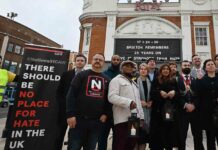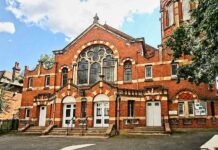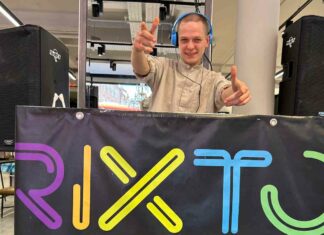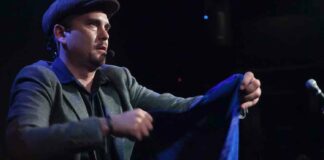Forty years on from the publication of the New York times article that cases of HIV lifelong Brixtonian Marc Thompson has created a podcast: ‘We were always here’. This beautifully intimate and alive oral retrospective explores the HIV epidemic from the perspectives of those who have previously been overlooked. Marc took some time out of his hectic schedule to chat to me from his Brixton flat, where he lives with his dog Travis about his life, community and the journey that brought him to his latest project.
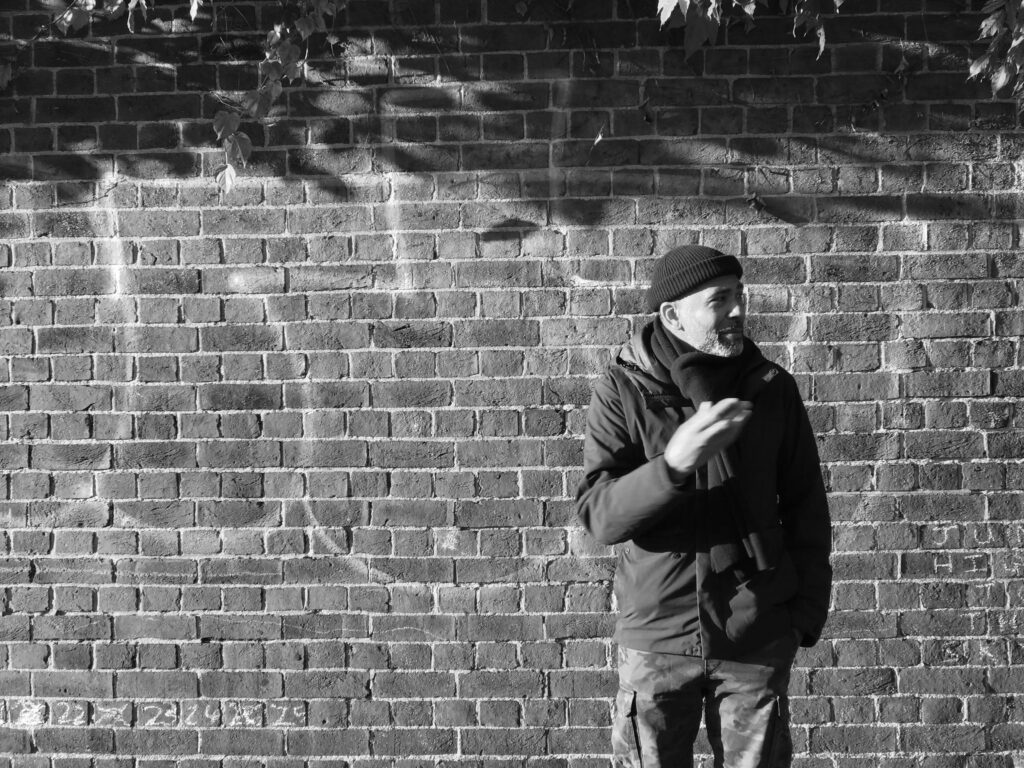
Marc Thomson was born in Brixton, a child of parents and grandparents who migrated from the Caribbean in the late 50s and early 60s. He tells me he was raised as part of ‘the established African Caribbean community that was really, really rich in the area’ and came out aged 16. Despite what he terms the ‘safety cushion’ of ‘an incredibly supportive family’ who raised him ‘to be very open and honest about myself and who I am’, only 17 years after the decriminalization of homosexuality; 1980’s Britain was still a dangerous place to be queer. As Marc says;
‘Across the UK, the media was deeply homophobic, to schools, the education system, the workplace. There were no laws protecting gay people, police raiding shops, entrapping men in public toilets. So it was a really dangerous, unsafe place to be if you were a queer kid, or a queer person coming up during that time and this was even before you throw the HIV and Aids epidemic into the mix. This country wasn’t particularly nice to gay people.’
Across the Atlantic from where the epidemic had first emerged, for 17 year old Marc the world had just opened up. He was out ‘living my life’, he found The Prince of Wales, a small circle of friends and began to party. He says he was ‘that boy that gets drunk’ and, whilst the scene presented through the mainstream media of clubs like Heaven, where white men strutted ‘with fans and shirts off and poppers’, his was and one less perceived that originated in Brixton: the Black gay scene. In this community he says: ‘We didn’t see anybody who had it (HIV). You know, this is white guys that were over there, they weren’t us.’ When a test became readily available Marc went without really thinking about it, then suddenly everything changed. I discuss this with Marc in terms of it’s being ‘before his adult life had even started’. Because, aged 17 it only really had. As he tells me:
‘And so I spent most of my adult life living as a (HIV) positive man. And it was very, very difficult because it was a time where getting a HIV diagnosis was akin to getting a death sentence…although I wasn’t told: you are going to die, what I saw around me were lots of people getting ill, dying disappearing, being rejected by families, getting awful treatment from healthcare, from the media, from the world. So out was a very distressing, very scary, unknown time for me.’
In the second episode of his podcast Marc is in discussion with writer and campaigner Juno Roche when they start to draw parallels between the HIV epidemic of the 80s and the Covid-19 pandemic of present, she says: ‘we’ve lived through this before. And it was a damn sight more scary for us there. Because no one cared, if we lived or died no one cared. So there was no one out clapping. There was no one putting a banner or a rainbow out. People were writing headlines like, ”Ship them off and shoot ‘em”. This kind of statement is typical of the intimate blend of historical fact and emotion that Marc seems uniquely able to evoke in people. For those like me, who did not experience the AIDs crisis first hand, it is these comparisons that are hugely powerful in creating an awareness and understanding of what it felt like to live it. For Marc too, who has been listening to each episode as it is released for the first time, this statement by Juno stood out:
‘What really interested me, particularly when Juno made that point was, we have been here before, but before was so so different. So with COVID, doctors can look at patients and go: oh right, okay, respiratory illnesses, oh loss of breath. So immediately, you know what to do to treat these people. And that actually kicked in really quickly and you saw that across the globe. With HIV and AIDS, this was mysterious, so I might get pneumonia and my friend might get KS (Kaposi Sarcomia), another friend might get neurological damage, somebody else might have a combination of all three. So it was different, not only that nobody gave a fuck, but when we did get into hospitals it could be absolutely everything, or nothing. So we talk about similarities, yes there are huge similarities, but even from a clinical and medical perspective, it was incredibly different. And there’s also the other thing as well with each prepatent period (the period between infection and presentation). So today, somebody gets covid and they’re either in hospital boom-terrible terrible things and it happens really quickly. With HIV you could be infected in 1985 and you may not develop any kind of illness or infection until four years later, in some cases, you may get those infections in two months and you could be dead.’
We move on to discussing other parallels and contrasts of the HIV epidemic and the COVD-19 pandemic, how the latter has brought people together: united people in the face of an external force, while the former was divisive. The external force being an ‘other’; a faction of humanity who had already suffered persecution and marginalisation at the hands of a society who now felt their actions and beliefs to be affirmed through the mysterious disease. Somehow manifesting, even validating their hatred. ‘And I was thinking yesterday…’ says Marc:
‘…when I was having a walk in Brockwell. If COVID had happened to just gay or bisexual men, or black communities this year, would we have been different? And I’m like, sadly we wouldn’t, it would be exactly the same. It may not be as loud, vicious, but it would be, sadly it would be the same. People would ostracise people, they would other people, they would sanction them or they would quarantine. They would do all of these things. You know why? Because that’s human nature.’
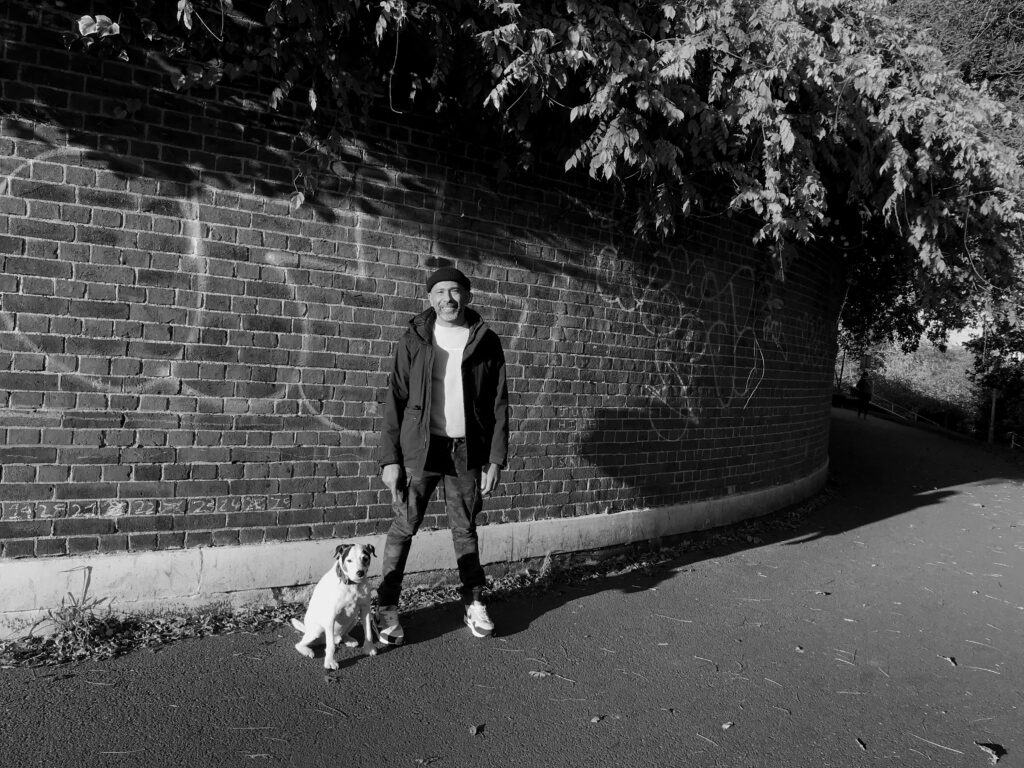
What is shocking, in the third episode of Marc’s podcast is a discovery he made, or rather was presented by his good friend and colleague Dr Ford Hickson; ‘learning that the national public education film about the disease had included a hidden acknowledgement that indeed, it was the wrath of God’ (this is in reference to the music of the widespread tombstone TV campaign). Mark believes it was this curated perception of the disease that still pervades:
‘I thinks what’s interesting, there are young gay men who have never seen that advert, but their parents have seen that advert and as much as their parents may be progressive and accept their sons sexuality, that has stuck in their mind and they still associate homosexuality with Aids and, therefore, that is the issue.’
Marc, who has spent the past 30 years campaigning for greater awareness and treatment brings together all of his experience and knowledge to create a podcast which doesn’t just discuss the epidemic but lives it. From his Mother to scientists, healthcare professionals, volunteers and campaigners, academics, journalists and all those between. Through the eyes and mouths of those who experienced it firsthand and the beautiful editing and soundscapes of Hana Walker-Brown of Broccoli Productions we are immersed in a degree of intimacy Marc seems uniquely positioned to access. In response to my questions about how he achieved the insight and raw emotion that makes this podcast so unique, Marc says:
‘I think, for me, my starting point was, I wanted more authenticity, and I want the truth. And when I did all the interviews, I said to my friends, and my colleagues and all the people I spoke to, when I started off, when we look back over the epidemic, as we get older and we distance ourselves from or become more distant from it, we tend to look back on those times it rose coloured glasses on, I want to take the rose coloured glasses off, or at least push into the top of your head and I want you to remember and to tell me as much as you want to and share as much as you want to, or as little. And I think that every single interview that I did had like three or four beats, where people would, well first of all were really grateful to be asked have their stories told because they not been asked before as a person. And secondly, there was a real sense of loss. You know, people remembered loved ones they remembered, fights with policy makers, battles with other organisations at work… You know, there was all of these stories, but what, what what came out of it for me more than anything was the joy and the love and the fun that we have in this darkest of time.’
When I ask Marc how he managed to retain hope through that initial period after his diagnosis he tells me he is not sure he was, that for a while it was sheer ‘stubbornness’, a hope that tomorrow would be more hopeful that got him through. As he says: ‘hoping that the next day you’d get through it. That the next week you’d get through it. It was quite a while before I found anything (hope).’ But it is exactly this part of his character, this resilience that began forming very early on, as a black gay man growing up in the 1970’s, that has enabled him to have such a successful career and make such big difference through his campaigning and activism. As he tells me: ‘I already had a lot of the tools at my disposal to understand and live in a world that rejected me. that has driven his campaigning and career.’ It is this resilience that has allowed him to always know the light is coming, even at the darkest of times.
And whilst we might feel we have come far, there is, Marc reminds me, a complacency to radicalism. That in its very nature is evolving and changing. So whilst visibility around queerness and its positive representation has improved by the standards of the radicalism of 40 years ago there is still so far left to go: ‘If we look at what is happening to trans people in this country, and the violence, and the vitriol that they are being met with, particularly young trans people, then no we haven’t moved on, we are still in a really dark place for some parts of our community.’ As I read over the transcript from our conversation I realise its relation to the song I’ve been humming absentmindedly. Dafydd Iwan singing from a different time and culture with lyrics that translate to; ‘in spite of everything and everyone, we are always here.’ and hope that as Marc says, we can make space so that: ‘in the darkest of times, the best of humanity can show up as long as it’s given the chance to show up.’

